April 05, 2022
Carbon Budget is used up
- Over the next six years we will have blown-through the century's worth of carbon "credit".
- Governments and fossil fuel industries have made it impossible to achieve a sustainable climate without removing CO2 from the atmosphere. Which is still not technically feasible at scale.
-
Mining – which contributes to greenhouse gasses and other environmental disasters – will have to double to reach climate goals according to report from the mining industry.
- $2tn will have to be invested in the sector to reach the production of new forms of energy.
-
Private investors are staying away because of recent disasters such as in Brazil.
Vale agrees to $7bn settlement over Brazil dam disaster Deal over Brumadinho breach that killed 270 people is Latin America’s largest such settlement
But the report also highlights the increasingly small chance of achieving the 1.5C target. The remaining carbon budget — or the total amount of CO2 that can be released into the atmosphere — reached around 500 gigatonnes of carbon dioxide equivalent in 2019.
That budget could be used as soon as 2028 if emissions remain at present levels of about 59Gt a year. After that point, every new tonne of carbon dioxide released into the atmosphere would need to be captured back again, to limit temperature rise to 1.5C.
“It is clear that the challenge is very, very big,” said Wiedmann. “It is certainly within this decade, and we are very close now, to using [the carbon budget] up.”
“We are on a pathway to global warming of more than double the 1.5-degree limit agreed in Paris,” said António Guterres, secretary-general of the United Nations. “Some government and business leaders are saying one thing, but doing another. Simply put, they are lying.”
French Election
- Far-Right continue to gain.
- Run-off between Macron and Le Pen now quite close.
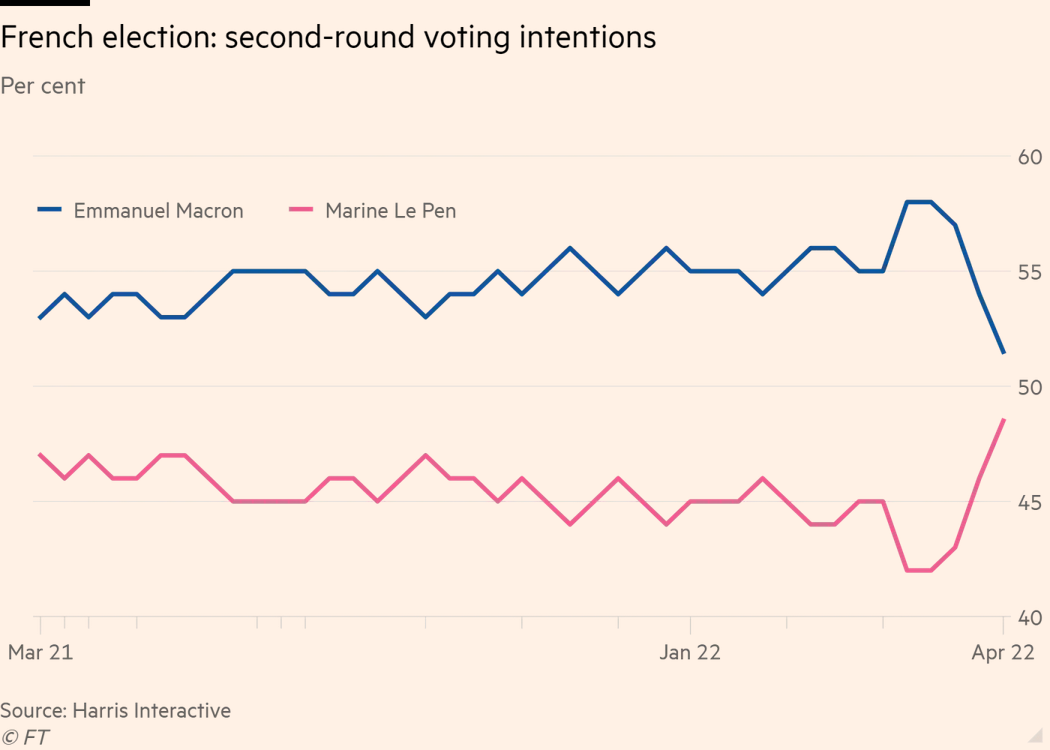
More blaming workers
The attack on employment has begun.
Federal Reserve Chair Jerome Powell said last month that one gauge of the U.S. job market showed an “unhealthy” squeeze between the supply and demand for labor. Goldman Sachs Group Inc. economists have come up with a modified measure that shows a more specific size and scope: the tightest job market since World War II.
This explains why wages are essentially climbing the fastest since the early 1980s, leaving out a distorted couple of months in the spring of 2020 when pandemic shutdowns ensued. Lately, they’ve been running at a 5% to 6% annual pace, but they’ll need to slow to 4% to 4.25% to get inflation down toward the Fed’s forecasts for 2023 and 2024 of notably under 3%, Goldman’s economists argue.
That will take an easing in that jobs-to-workers gap.
“In order to reduce wage pressure to levels at least broadly consistent with the Fed’s inflation target, we estimate that the gap needs to shrink by at least one-half,” Hatzius wrote.
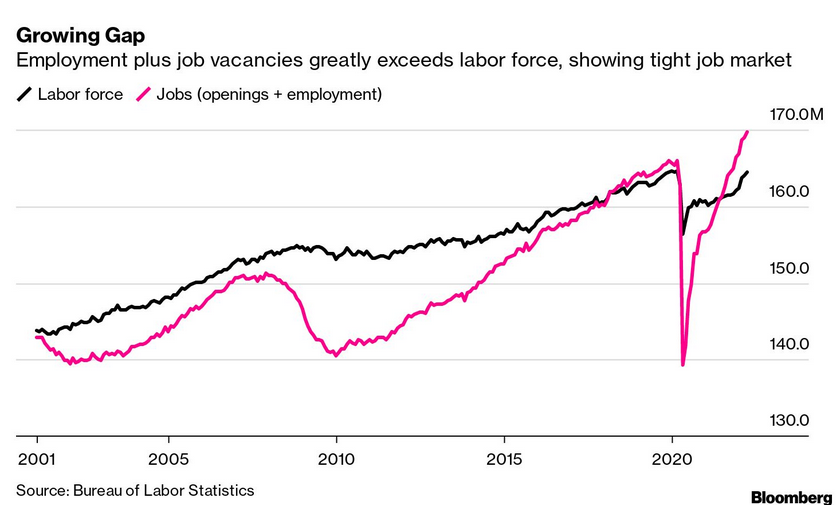
Pandemic profits
- CEO's and owners of Pharma companies linked to the vaccine roll-out are reaping huge profits.
- Numbers clearly show that investment in new drugs is not where the money goes.
- Pharma companies continue to horde production knowledge.
“Bancel, Bourla and the other vaccine kings built a royal fortune predicated on a monopoly business model that has driven vaccine apartheid,” said Steve Knievel, access to medicines advocate at Public Citizen, a progressive think-tank.
But there has been little pushback by investors that have been richly rewarded for backing the companies. “The vaccines provided an incredible return on investment from a societal perspective,” said Akash Tewari, analyst at Jefferies, an investment bank.
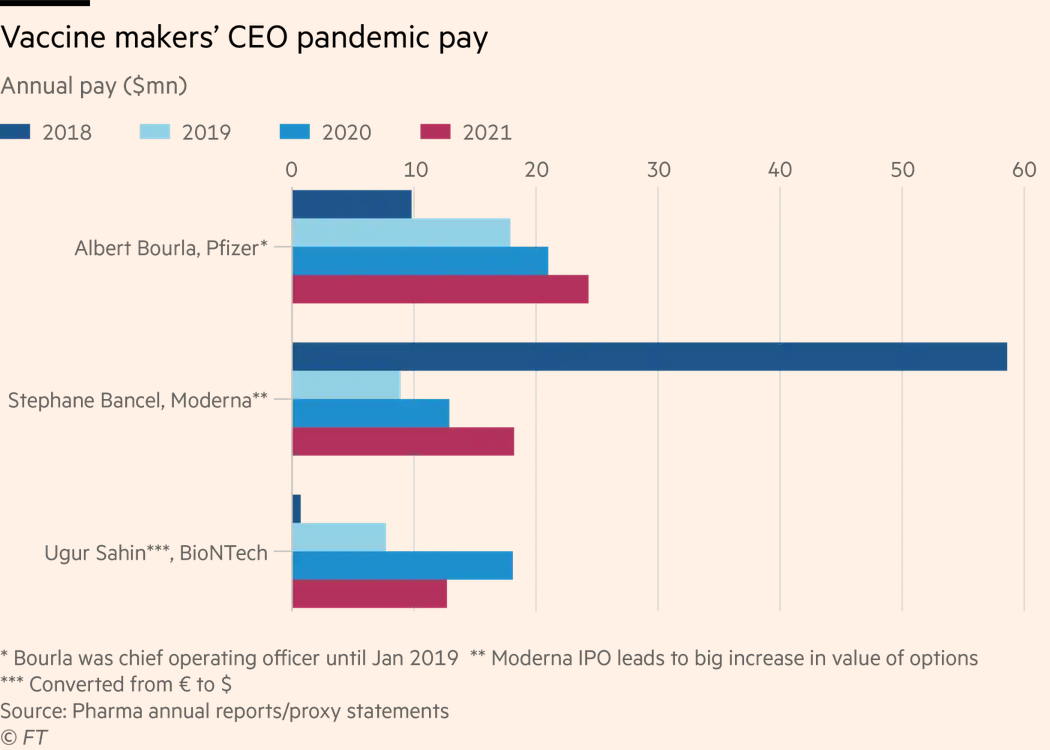
99% of us breath polluted air: WHO Air quality database
- Beyond climate change, we continue to poison ourselves in a multitude of ways.
Almost the entire global population (99%) breathes air that exceeds WHO air quality limits, and threatens their health. A record number of over 6000 cities in 117 countries are now monitoring air quality, but the people living in them are still breathing unhealthy levels of fine particulate matter and nitrogen dioxide, with people in low and middle-income countries suffering the highest exposures.
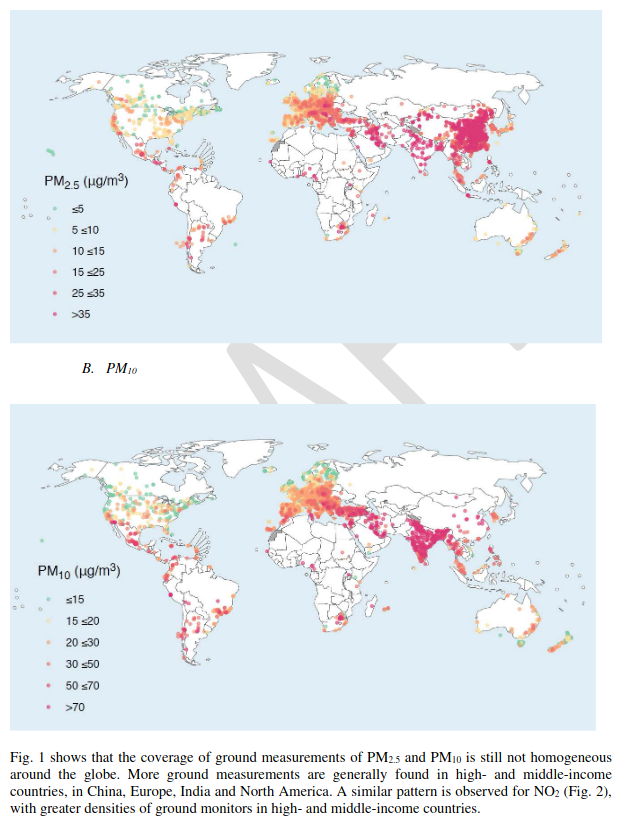
Water quality also an issue
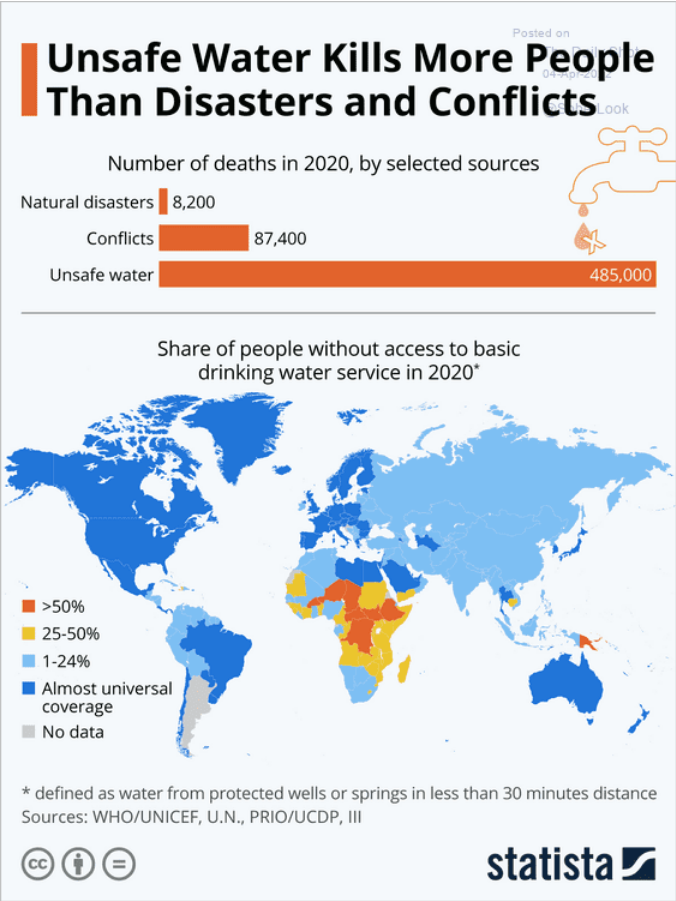
Berlin nationalizes over Gazprom storage
- Always fun to watch capitalist countries do things they say are impossible:
The Berlin government has seized control of Gazprom Germania, the subsidiary of the Russian gas group that operates some of Germany’s largest natural gas storage facilities.
In a statement on Monday, economy minister Robert Habeck said the Bundesnetzagentur, Germany’s federal energy regulator, would become temporary trustee of Gazprom Germania with full powers of a shareholder in the entity.